Table of Contents
What Is a Participle Phrase?
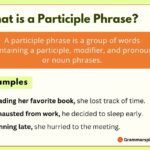
A participial phrase is a group of words that starts with a participle and works as an adjective to describe a noun or pronoun.
Examples sentences:
The child playing in the park looked very happy.
(Playing in the park describes the child.)
The vase, broken by the cat, lay on the floor.
(Broken by the cat describes the vase.)
Surprised by the news, she couldn’t say a word.
(Surprised by the news explains her reaction.)
How to use a Participial Phrase
A participial phrase is used to describe or modify a noun or pronoun in a sentence. It adds descriptive details to make writing more specific and engaging. Participial phrases can appear at the beginning, middle, or end of a sentence.
However, they must be placed close to the noun they modify to avoid confusion.
1. Beginning of a sentence:
- Walking through the forest, they discovered a hidden trail.
(Walking through the forest describes what they were doing.)
2. Middle of a sentence:
- The car, damaged in the accident, was taken to the repair shop.
(Damaged in the accident describes the car.)
3. End of a sentence:
- She smiled, pleased with her progress.
(Pleased with her progress explains why she smiled.)
Components of a Participle Phrase
A participle phrase consists of a participle (a verb form used as an adjective) and its accompanying words, such as objects, modifiers, or complements. The phrase works as an adjective, modifying a noun or pronoun in the sentence.
Main key elements of participle phrase
1. The Participle
The participle is the main verb form in the phrase, either in the present participle (-ing form) or past participle (-ed, -en, or irregular forms).
- Present Participle: Running, jumping, swimming
- Past Participle: Tired, broken, excited
2. Modifiers
Modifiers are words that provide more detail about the participle. These words can be adjectives or adverbs that modify the participle, giving more context to the action or description.
- Running quickly through the field, he passed everyone.
Quickly modifies the participle running (how he was running).
3. Objects and Complements
Some participle phrases include an object or complement, which completes the meaning of the participle. This can be a noun, pronoun, or other elements that help clarify the action.
- Having completed the assignment, he took a break.
The assignment is the object of the participle completed.
5. Prepositional Phrases (Optional)
A participle phrase may also include prepositional phrases that provide additional information about the action.
- Sitting on the bench, she watched the game.
On the bench is the prepositional phrase that gives more detail about where she was sitting.
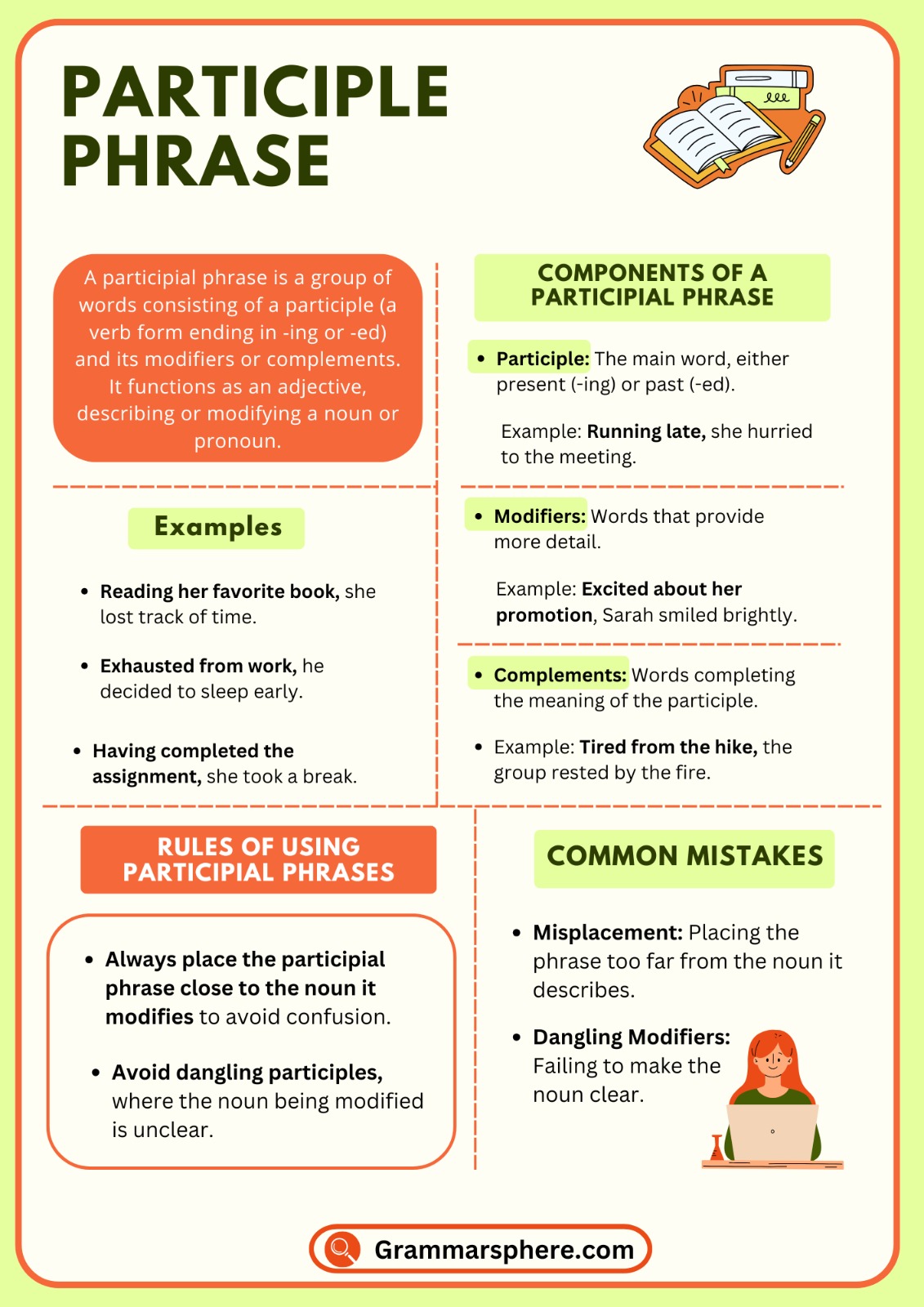
Past Participle versus Present Participle
Past participles and present participles are verb forms used in different ways in sentences. Understanding their differences helps in using them correctly.
Past Participle
- Form: Usually ends in -ed, -d, -t, -en, or -n (depending on the verb).
- Use: Functions as an adjective or helps form perfect tenses and passive voice.
The food, cooked to perfection, smelled delicious.
- She has completed her homework.
- The bridge was built last year.
Present Participle
- Form: Always ends in -ing.
- Use: Functions as an adjective or helps form continuous tenses.
The child laughing loudly caught everyone’s attention.
- She is writing a letter.
- They were playing football in the evening.
Participle Phrase versus Gerund Phrase
Participle phrases and gerund phrases may look similar because they both begin with a verb ending in -ing, but they serve different purposes in sentences. Understanding their differences helps avoid confusion.
Participle Phrase
- Function: Acts as an adjective, describing a noun or pronoun.
- Form: Begins with a present participle (-ing) or past participle (-ed, -en, etc.) and may include modifiers or objects.
Examples
- The students waiting for the bus were getting impatient.
- The cake, baked yesterday, was delicious.
Gerund Phrase
- Function: Acts as a noun, used as the subject, object, or complement in a sentence.
- Form: Begins with a verb in the -ing form and may include modifiers or objects.
Examples:
- She enjoys reading mystery novels.
- His favorite activity is hiking in the mountains.
- Swimming in the ocean is refreshing.
Dangling Participles
A dangling participle occurs when a participial phrase is not clearly or logically connected to the noun it is supposed to describe. This creates confusion, as the sentence may imply an unintended meaning.
Dangling participles usually appear at the beginning of a sentence, and their intended subject is either missing or placed incorrectly.
How to Identify a Dangling Participle
A dangling participle occurs when a participial phrase (a group of words that begins with a participle) is not clearly connected to the noun it is supposed to describe. This can lead to confusion or awkward sentences. To identify a dangling participle, look for the following signs.
1. Check the Subject
Ensure the noun or pronoun that the participial phrase is describing is clearly stated and placed next to the participle. If the participle doesn’t clearly relate to a specific noun, it’s likely a dangling participle.
- Running late, the car was not started in time.
(This suggests the car was running late, which doesn’t make sense.)
Correct:
- Running late, she couldn’t start the car in time.
(Now it’s clear that “she” was running late, not the car.)
2. Look for Missing or Ambiguous Subject
If the subject of the sentence is not the one performing the action in the participial phrase, then it’s a dangling participle.
- Walking through the door, the lights were turned on.
(The lights can’t walk through the door, so it’s unclear who was walking.)
Correct:
- Walking through the door, he turned on the lights.
(Now it’s clear that “he” was walking through the door.)
3. Ensure Proper Placement
Make sure that the participial phrase is placed immediately before or after the noun it modifies. A participial phrase that is too far away from the noun can lead to confusion or a dangling participle.
- Shouting loudly, the door was slammed shut.
(This suggests the door was shouting loudly, which doesn’t make sense.)
Correct:
- Shouting loudly, she slammed the door shut.
(Now it’s clear that “she” was shouting loudly, not the door.)
Participle Phrase and a Verb Phrase
A participle phrase and a verb phrase may look similar, but they have different purposes and functions in a sentence.
1. Participle Phrase
A participle phrase acts as an adjective to describe a noun or pronoun. It begins with a participle (a verb form ending in -ing, -ed, or other past participle forms) and may include modifiers, objects, or complements.
Examples:
- The dog, barking loudly, scared the neighbors.
- The vase broken during the storm cannot be repaired.
2. Verb Phrase
A verb phrase functions as the predicate of a sentence. It consists of a main verb and any helping (auxiliary) verbs that modify the action.
Examples:
- The dog was barking loudly.
- She has completed the assignment.
Comparison for Clarity
| Feature | Participle Phrase | Verb Phrase |
|---|---|---|
| Function | Acts as an adjective | Acts as the main action of the sentence |
| Position | Describes a noun, placed near it | Located in the predicate |
| Example | The child, smiling brightly, waved. | The child was smiling brightly. |
Rules for Forming Participle Phrases
A participle phrase begins with a participle (a verb form) and may include objects, modifiers, or complements. It acts as an adjective, describing a noun or pronoun in the sentence. To form a participle phrase correctly, follow these rules:
1. Start with a Participle
The phrase must begin with a present participle (-ing) or a past participle (-ed, -en, etc.).
- Present Participle: The girl singing beautifully captivated the audience.
- Past Participle: The dog, trained by a professional, is very obedient.
2. Place the Phrase Near the Noun It Modifies
The participle phrase should be positioned close to the noun it describes to avoid confusion.
- The book lying on the table belongs to her.
- The flowers, planted last spring, are blooming now.
3. Make the Subject Clear
The noun being modified must be clear and logical to avoid dangling participles.
- Incorrect: Running late for work, the traffic was frustrating.
- Correct: Running late for work, she found the traffic frustrating.
4. Use Participial Phrases to Add Details
Participial phrases add extra information about the noun or pronoun, making sentences more descriptive.
- The children, excited about the trip, couldn’t stop talking.
- Walking in the rain, he felt refreshed.
Examples of Participle Phrases
- Running through the park, the boy enjoyed the fresh air.
- The cat, frightened by the loud noise, hid under the bed.
- Laughing at the joke, she spilled her drink.
- The house, painted last summer, looks brand new.
- Walking home after school, the children talked about their day.
- The vase, broken during the move, was beyond repair.
- Exhausted from the long hike, they rested by the lake.
- The man, wearing a blue jacket, waved at us.
- Dripping with water, the umbrella was left in the corner.
- The dog, chasing its tail, amused everyone around.
Frequently Asked questions about Participial Phrases
1. What is a participial phrase?
A participial phrase is a group of words that begins with a participle (a verb form) and functions as an adjective. It adds more detail to a noun or pronoun.
Example:
The car, damaged in the storm, needs repairs. (Damaged in the storm describes the car.)
2. How is a participial phrase different from a gerund phrase?
A participial phrase acts as an adjective, while a gerund phrase functions as a noun.
Example of Participial Phrase:
The boy running to the store is my brother.
(Describes the boy)
Example of Gerund Phrase:
Running to the store is good exercise.
(Acts as the subject)
3. What is a dangling participial phrase?
A dangling participial phrase occurs when the phrase does not clearly describe any noun in the sentence, leading to confusion.
Incorrect:
Walking home, the rain started pouring.
(Who was walking?)
Correct:
Walking home, she was caught in the rain.
(Clear subject: she)
4. What is the difference between a participle and a participial phrase?
A participle is a single word (verb form) used as an adjective, while a participial phrase is a group of words that includes a participle and its modifiers.
Examples:
Participle: The crying baby needs attention.
Participial Phrase: The baby crying loudly for food needs attention.
You May Also Like

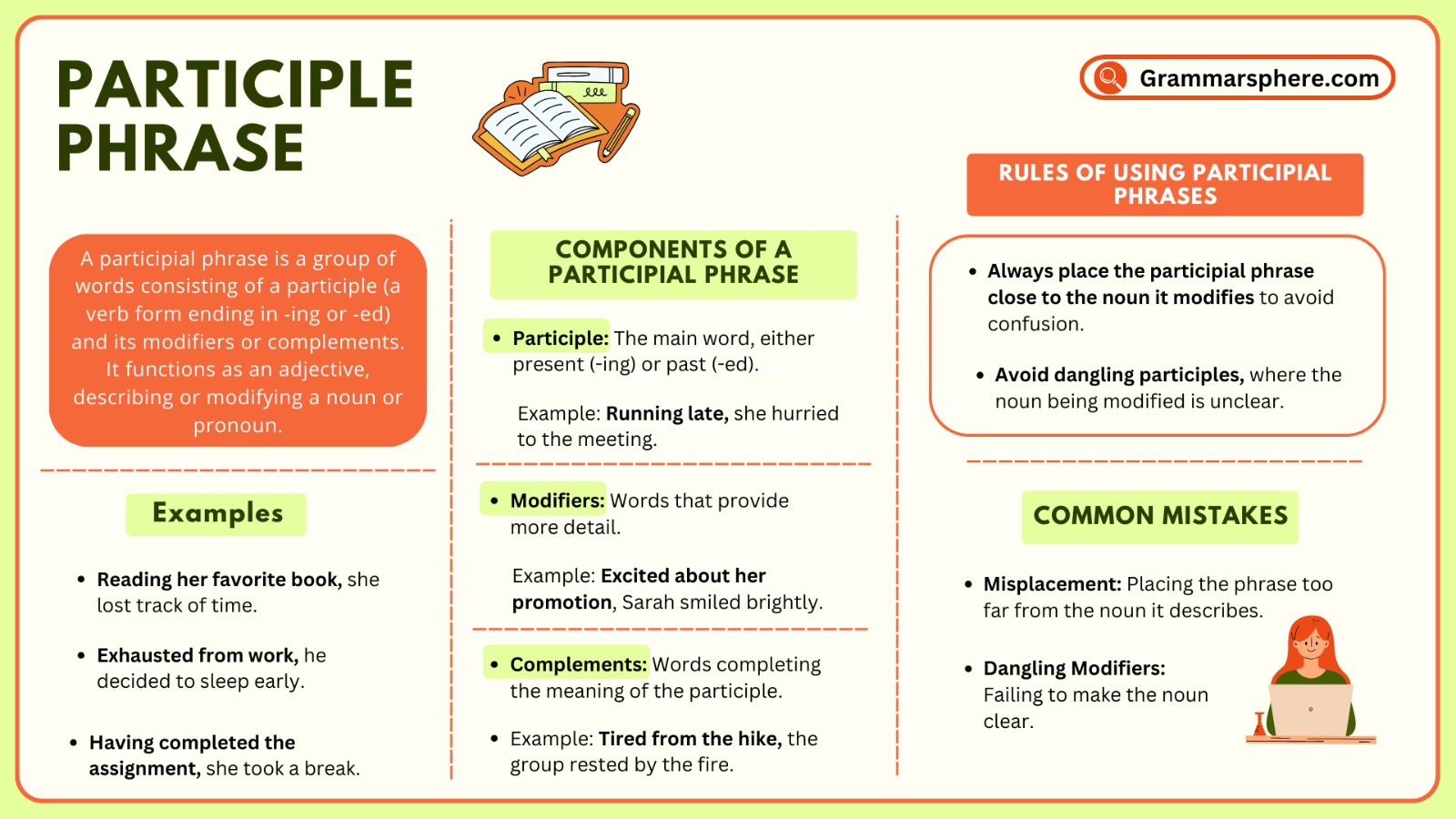
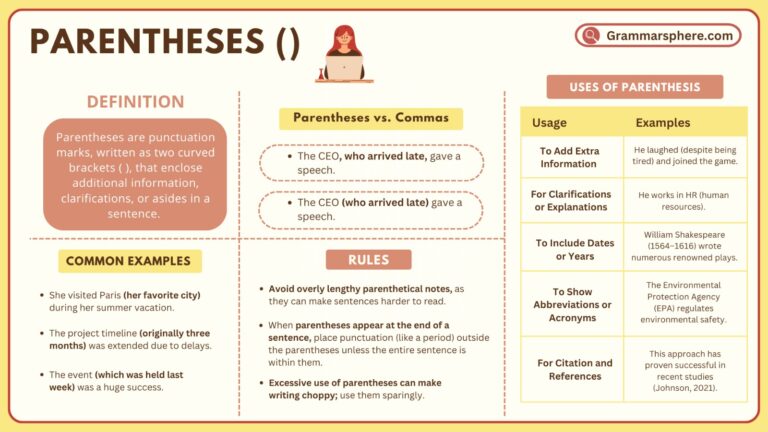
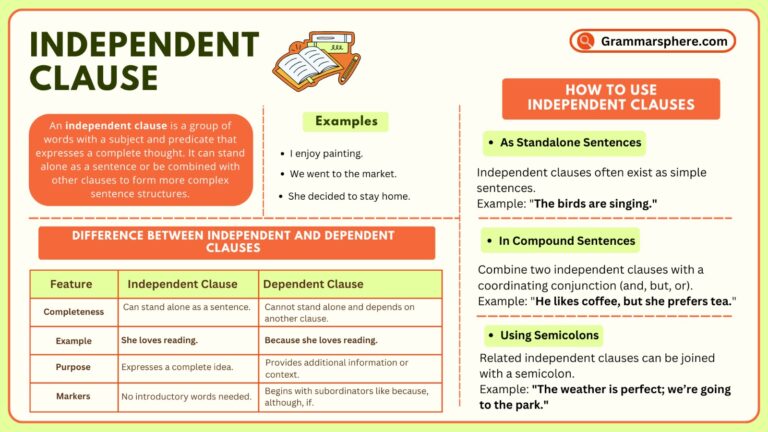
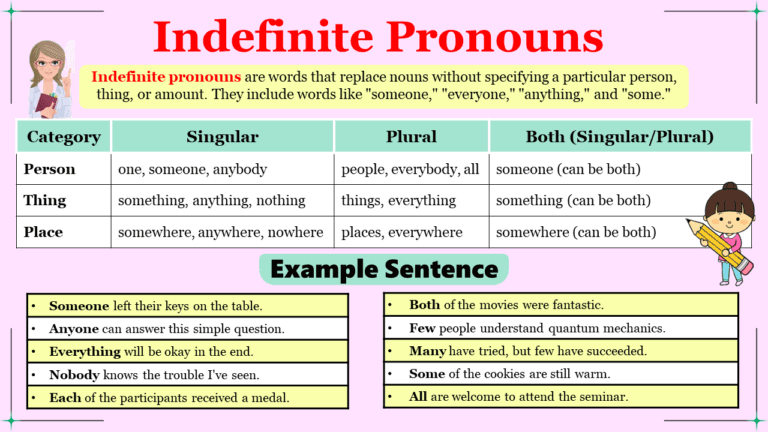
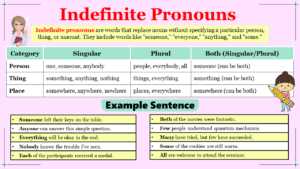
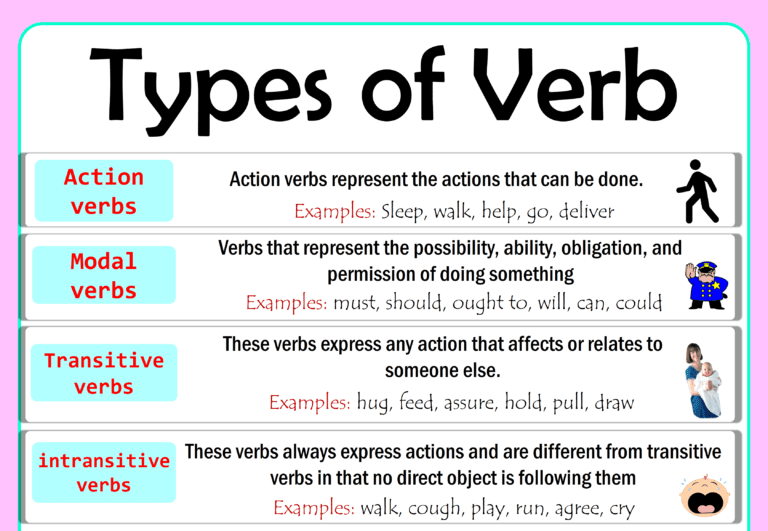
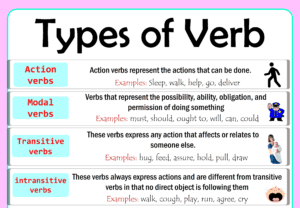
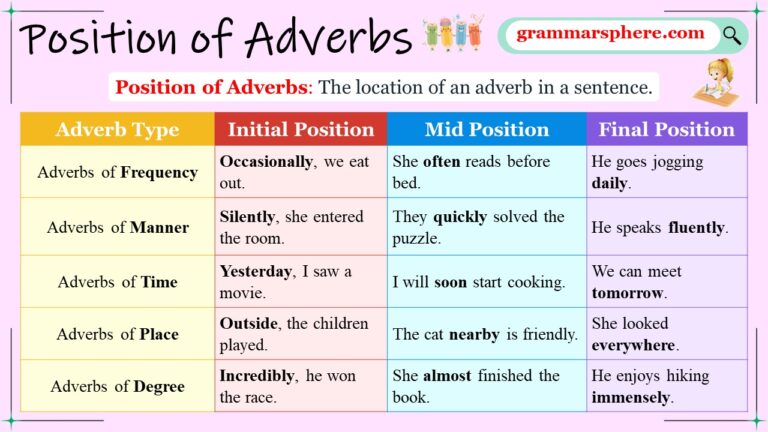
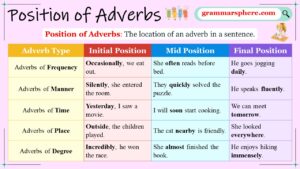
Leave a Comment